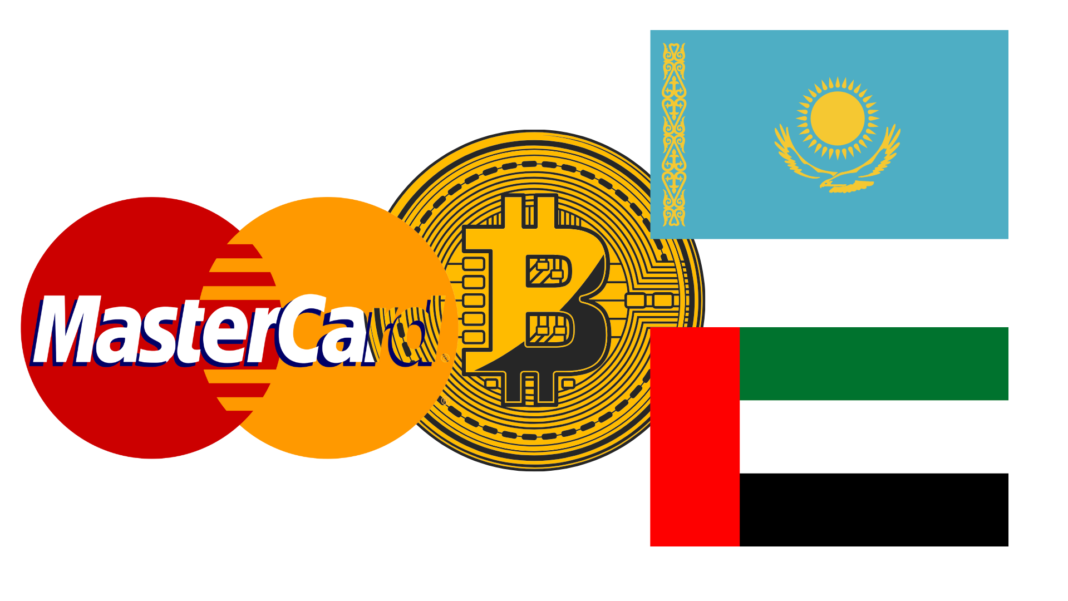Mastercard has officially expanded its Crypto Credential service into the UAE and Kazakhstan, making its debut in the Eastern Europe, Middle East, and Africa (EEMEA) market.
This update makes bitcoin transactions easier for customers by allowing them to send and receive cryptocurrencies via simple aliases rather than sophisticated blockchain addresses.
The solution is part of Mastercard’s broader effort to streamline crypto transactions and enhance trust in the digital asset ecosystem the press release stated.
What is the Crypto Credential Solution?
Mastercard’s Crypto Credential solution aids in blockchain network transaction verification by collaborating with important exchanges and suppliers in the area.
It guarantees that the transferred asset is supported by the recipient’s wallet and that users fulfil a set of verification requirements.
By exchanging metadata and Travel Rule information, the solution aims to bring greater certainty and security to crypto transactions.
Key exchanges such as ATAIX Eurasia, Intebix, CoinMENA, and Fuze, a prominent digital asset infrastructure provider, will now offer Mastercard’s Crypto Credential solution.
Quote from the Company Men
Gaurang Shah, Executive Vice President and Head of Core Payments for EEMEA at Mastercard stated that the company is focused on developing innovative services to make crypto more accessible and secure.
By delivering the Mastercard Crypto Credential to the EEMEA area, Mastercard is fulfilling its mission of enhancing trust in blockchain technology and revolutionising how consumers engage with digital assets.
Exchanges must first validate users in accordance with Mastercard’s guidelines before allowing them to use the Mastercard Crypto Credential. Users are given an alias to transfer and receive money across approved exchanges after being authenticated.
Before starting a transaction, the system confirms that the recipient’s alias is authentic and that their wallet supports the digital asset. If not, the transaction is terminated and the sender is notified, protecting both parties from potential damages.
Layers for the Project
The initial phase of the pilot will focus on facilitating peer-to-peer transactions. NFTs, ticketing, and other cutting-edge payment methods may be added to the Crypto Credential solution’s scope in the future, contingent on market demand and regulatory restrictions.
Following previous deployments in North America, Europe, Latin America, and Asia Pacific, Mastercard is now expanding into the United Arab Emirates and Kazakhstan.
First-come, first-served access to the Mastercard Crypto Credential will be granted to a limited number of cryptocurrency wallet customers when the solution is implemented.
Also Read: Bitget Partners With Fiat24 To Revolutionize Crypto Payments And PayFi Solutions
Yagub Zamanov, Director of the FinTech Division at the Astana Financial Services Authority, emphasized the importance of clear regulatory frameworks to build trust and confidence in the digital asset space.
Similarly, Talgat Dossanov, CEO of Intebix, remarked on the importance of Mastercard’s Crypto Credential in shaping the future of fintech, not just in Kazakhstan but globally.
The collaboration between Mastercard and local digital asset providers is poised to lay a strong foundation for a more trusted, transparent, and inclusive crypto ecosystem.
The Crypto Credential program is regarded as a significant step towards increasing the accessibility and usability of digital assets, particularly for individuals switching from traditional finance, as Mastercard continues to adopt blockchain technology.
Mastercard on the Digital Assets Space
Mastercard’s focus on innovation in the digital asset space extends beyond the Crypto Credential program. In the past year, the company also extended support for non-custodial Bitcoin wallets, allowing customers to spend cryptocurrencies while maintaining full control over their assets.
The company’s partnership with the European cryptocurrency payments infrastructure operator Mercuryo aims to bridge the gap between traditional banking and cryptocurrency, marking a significant step toward integrating the two worlds.
Also Read: Stellar Partners With Mastercard As Trading Volume Soars By More Than 38%


